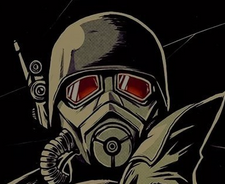- cross-posted to:
- autism@lemmy.world
- cross-posted to:
- autism@lemmy.world
Tips on how to discuss autism in a respectful and inclusive fashion.
I really like this handout because it helped understand considerate terminology when I first found out I was autistic as an adult. Until then, all I really knew about autism (from an education sense) came from a clinical perspective or a few people talking about it here and there when it came up. Maybe people realized I was autistic and controlled themselves around me. Who knows. Anyway, this site was like a crash course on my newly discovered identity and community. It also helped me see myself as a complete person rather than a person that is missing something. Instead of being a person with autism or a person without neurotypical traits, I was an autistic person or a different type of person, but still a complete person that wasn’t broken.
Personally, I also like how they advocate against using disorder or syndrome because it pathologizes our neurotype rather than embracing it.
Another thing I like is being against using the term handicap. I’m lucky enough to be intelligent, yet I never saw an allistic person as handicapped because they weren’t intelligent. In fact, I’m kind of against the overall concept of intelligence as a general idea of a person’s capacity. Someone may have difficulty understanding abstract ideas in physics but at the same time have an impressive understanding of the dynamics in a basketball court. Who’s the more intelligent one in that case? I don’t know. Still, I appreciate that they advocate against seeing me as handicapped for not having the capacity to pick up on subtle social cues that allistic people tend to use to communicate in what they see as considerate or respectful, a trait which I consider as being unassuming. We both have our strengths and weaknesses.
remember that all autistic people are different
Yep! I heard Mom on the Spectrum say (she might have quoted someone else) that “When you meet one autistic person, you’ve met one autistic person.” We’re all different, just like allistic people are different.
Avoid saying: high/low functioning autistic person
I was recently screened by a nurse over the phone for a colonoscopy. She said that she saw in my records that I’m diagnosed with ADHD and taking atomoxetine. My records are a mess right now (for reasons I won’t get into), so I added that “I’m also autistic, so I’m extra special.” She responded, “But your high functioning, right?” I agreed because I didn’t want to get into describing all of my difficulties and effort that I put into surviving. The point being was that despite my functioning, it didn’t really seem relevant to the conversation, so why did we need to define that? I guess maybe to provide support as necessary. Yet, if that were the case, discussing needs probably would have been more effective and efficient than defining my level of functioning.
Avoid saying: people living with autism
This one just cracks me up! “We have autism all over this house! You can’t get away from it. If you try to shower, the autism comes out of the shower head. If you try to do laundry, your clothes come out smelling like autism. You make fried chicken…you guessed it. It tastes of autism permeating every fiber. And it goes beyond living with it. My grandpa died, and autism followed us to the funeral. You can’t get away from it. We are literally dying with autism. It’s EVERYWHEREEE!”
Avoid saying: people whose lives are touched by autism
omg, another funny one! “This guy sang such a beautiful song, that his autism came out of his mouth, touched my heart, and I started to cry. It was so autistical.”
There is one bullet point I personally disagree with:
an autistic/autist/autie/aspie
These are probably rooted in a history of bullying and abuse. While I did experience a lot of intense bullying, I didn’t experience it by being called those terms, so I don’t have an emotional reaction to them. To me, I find that using those words among ourselves is like taking the word back. I actually like the terms autie and aspie. They sounds cute to me. I might even use them in a future username somewhere. I could use “HottieAutie” on a dating app, lol. Perhaps, other people feel different about them, and I would like to hear from those people on how and why.
I’m sort of on the fence on whether I like “autistic person” vs. “Person with autism”. I don’t mind “autistic person” but I’d rather be identified as a person first. Maybe “person who is autistic.“ Anyway, only talking about my personal preference.




